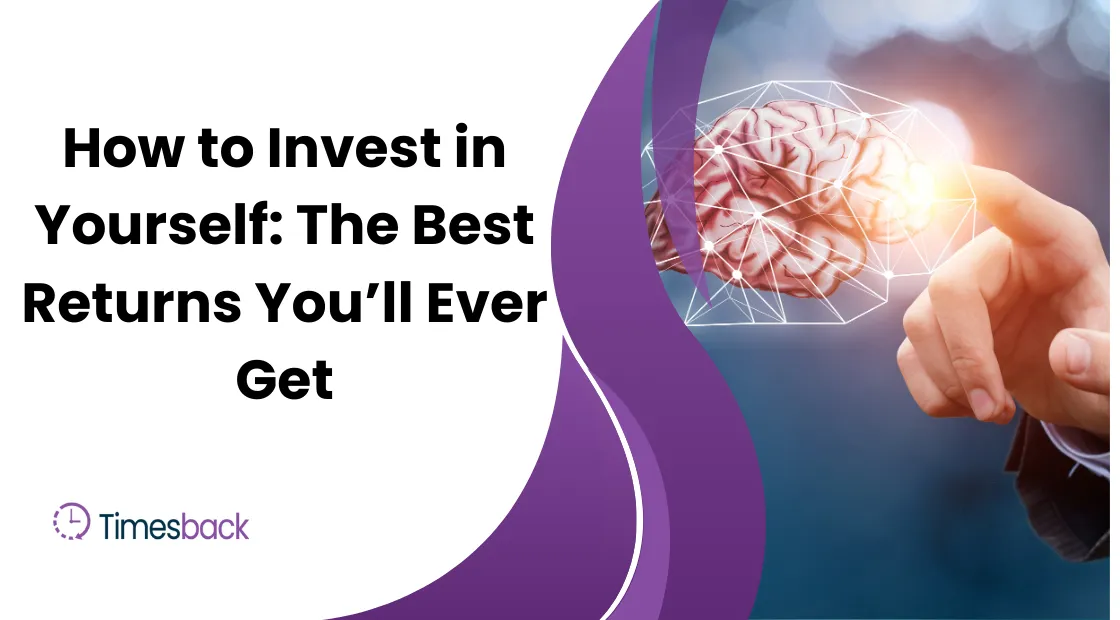如何投资自己:获得最佳回报

如果你正在寻找高收益的投资机会, 投资自己 这将是你做过的最明智的决定。
广告
与股票或房地产不同,自我投资会随着时间的推移而产生复利效应——提高你的技能,拓展你的机会,提升你的生活质量。
沃伦·巴菲特曾说过: “你所能做的最好的投资就是投资自己的能力。” 他说得对。
宾夕法尼亚大学的一项研究发现,那些投入时间和资源进行自我提升的人,往往能获得更高的成就。 127% 更高的投资回报率 与那些不这样做的人相比,他们在职业发展方面更有优势。
广告
但这究竟意味着什么? 投资自己这不仅仅是金钱的问题——而是时间、心态和深思熟虑的行动的问题。
让我们来探讨一下确保个人成长终身受益的最有效策略。
投资自己可以有很多种形式,从接受教育到增强身体健康。
每一项投资都有助于为您的未来奠定更坚实的基础,使您能够更有效地应对生活中的挑战。
1. 知识:思维的复利效应
最成功的人从不停止学习。
无论是通过书籍、课程还是导师指导,获取知识就像播种,最终会长成森林。
以埃隆·马斯克为例,他通过阅读教科书自学了火箭科学——这证明坚持不懈的学习可以重塑现实。
除了正规教育之外,通过播客、纪录片和在线资源进行非正式学习也能显著拓宽你对各种学科的理解。
培养终身学习的心态,不仅可以提升你的技能,还能让你在快速变化的世界中保持适应能力。
此外,与他人分享知识可以加深你的理解,并在你的领域内建立宝贵的人脉。
可执行步骤:
- 每天抽出 30 分钟时间阅读(非虚构类书籍、行业报告或人物传记)。
- 报名参加高影响力在线课程(Coursera、MasterClass 或 Udemy)。
- 参加你所在领域的研讨会或网络研讨会。
表1:持续学习的投资回报率
| 投资 | 潜在回报 |
|---|---|
| $100 在课程 | $10,000+ 职业发展 |
| 每天阅读1小时 | 更快的解决问题速度和创造力 |
| 社交活动 | 开启机遇与合作 |
2. 健康:你的身体是你最好的生意
忽视健康就像耗尽你的投资组合——最终,你会崩溃。
规律运动、优质睡眠和合理膳食不是支出,而是不可或缺的投资。
把你的身体想象成一台高性能机器:保养得越好,运转时间就越长,性能就越强。
投资于健康可以提高精力水平和改善认知功能,使您能够在生活的各个方面都发挥出最佳水平。
将你喜欢的活动,无论是跳舞、徒步旅行还是团队运动,融入到你的健康生活中,可以让保持健康变得更加愉快和可持续。
此外,通过正念练习来重视心理健康可以增强你的整体幸福感和韧性。
例子:
- 案例研究: 哈佛大学的一项研究表明,经常锻炼的员工…… 15% 生产力更高 比久坐不动的同龄人更活跃。
可执行步骤:
- 每周进行 3 次力量训练(提高思维清晰度和延长寿命)。
- 提前准备餐食,避免冲动购买垃圾食品。
- 保证7-9小时睡眠(对记忆力和决策能力至关重要)。

3. 技能:未来的通行证
自动化正在取代工作岗位,但适应能力是不可替代的。
投资自己 这意味着掌握人工智能无法复制的技能——情商、创造力、领导力。
类比集:
你的技能就像一把瑞士军刀——你拥有的工具越多,你能解决的问题就越多。
培养多元化的技能不仅能提高你的就业能力,还能增强你在各种情况下的自信心。
考虑在工作中接受新的挑战,或者自愿参与能够拓展你能力的项目。
这种积极主动的态度可以带来意想不到的机会和职业发展。
可执行步骤:
- 学习公开演讲(增加影响力)。
- 培养编程或数据素养(为你的职业生涯保驾护航)。
- 练习谈判(既能省钱也能赚钱)。
4. 人脉:你的净资产与你的人脉息息相关。
良好的人脉关系可以加速成功。
LinkedIn的一项调查发现 85% 个工作岗位是通过人脉关系填补的。——证明人脉比简历更重要。
例子:
- 真实案例: 一位自由设计师在与前同事的一次普通咖啡会面后,成功拿下了一个财富 500 强客户。
建立强大的关系网络需要付出努力和真诚;它关乎建立真正的人际关系,而不仅仅是交易性的联系。
参加社区活动或加入专业组织可以帮助你结识志同道合的人。
此外,利用 LinkedIn 等社交媒体平台可以扩大您的影响力,并促进有意义的对话。
可执行步骤:
- 每月参加1次行业活动。
- 与以前的同事重新建立联系(互惠互利的成长机会)。
- 先提供价值,再提出请求。
5. 心态:无形的变革者
恐惧和自我怀疑是投资回报率的最大杀手。
树立成长型思维——相信能力可以提高——就能释放潜能。
反问句:
你会和拒绝放弃的人打赌吗?
培养积极的心态可以改变你应对挑战的方式,让你把挫折视为成长的机会。
培养感恩之心,专注于自身优势,可以提升你对生活的整体态度。
多与支持你、鼓励你成长的人相处,可以进一步强化这种心态。
可执行步骤:
- 每天写日记(找出限制性信念)。
- 观看励志内容(播客、TED演讲)。
- 把失败当作通往成功的必经之路。

6. 金融素养:将金钱视为工具,而非目标
如果没有精明的管理,收入再高也意义不大。
做好预算、投资理财、避免生活方式膨胀,才能确保财务自由。
表2:小理财习惯的力量
| 习惯 | 十年影响 |
|---|---|
| 每月投资 $300 | $50,000+(7% 回报) |
| 每天减少 $5 杯咖啡 | $18,250 已保存 |
| 协商 5% 加薪 | $100,000+ 额外 |
了解基本的金融知识能让你做出明智的理财决策。
考虑咨询财务顾问,制定符合您目标的个性化计划。
此外,了解投资选择可以帮助你随着时间的推移积累财富。
将金钱视为实现目标的工具,而不是最终目标本身,你就能创造更充实的生活。
想了解更多关于金融知识方面的见解,请查看 投资百科.
结论:你最大的资产就是你。
投资自己 这不是自私——这是策略。
无论是通过知识、健康、技能还是人际关系,每一份努力都会累积成更丰富、更充实的生活。
市场有波动,但自我提升只会增值。
所以,请问问自己: 今天你会做哪件事来投资未来的自己?
从小规模做起,坚持不懈,然后坐等回报滚滚而来。
记住,自我投资是一个持续的过程,你迈出的每一步都会为你的未来奠定更坚实的基础。
享受过程,并庆祝一路走来的进步!
